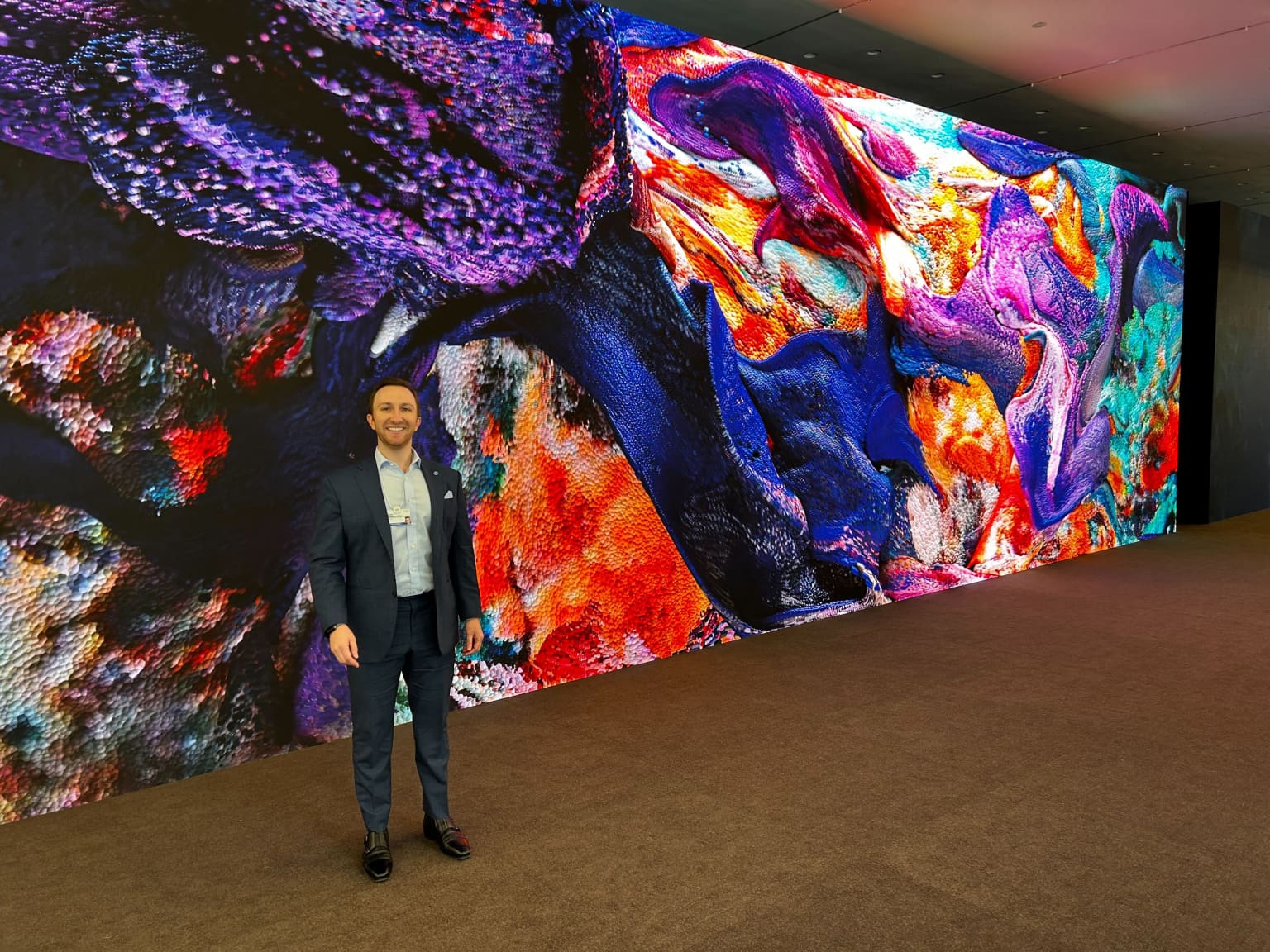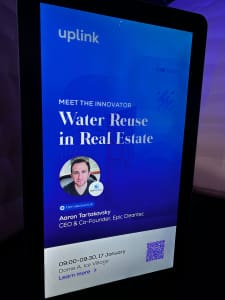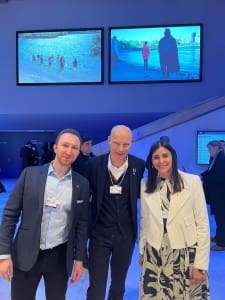What the World Economic Forum showed me: water security relies on cooperation


By Aaron Tartakovsky
Epic Cleantec Co-Founder + CEO
Having returned from the World Economic Forum’s Annual Meeting in Davos a month ago, I’ve had some time to reflect on the experience.
When I entered the water industry nearly 10 years ago, I came to learn that as omnipresent as water may be in our lives, our water challenges have been largely relegated to the sidelines of the greater climate change conversation. In spite of the fact that the first effects of climate change are often felt through water — too much, too little, wrong place, wrong time — the topic as a whole receives a fraction of the attention and investment that it deserves.

But in Davos I experienced a first.
To my pleasant surprise, conversations about water were actually at the forefront of this major international conference. And that’s exactly where water discussions should be given that we all rely on vulnerable freshwater resources. I was incredibly inspired and energized to see so many prominent corporate and world leaders elevating the water issue.
I had the privilege of participating in several high-level discussions on how the intersection of technology, regulation and business model innovation can help solve many of our most vexing climate challenges. These conversations were led by executives from influential companies including Suez, Coca-Cola, PepsiCo, Deloitte, HCLTech, Unilever, EDGE, JLL, Microsoft and Salesforce, who revealed a growing recognition that water change and climate change are inextricably linked.
Another highlight was when UpLink – World Economic Forum and HCLTech announced the winners of the first Freshwater Innovation Challenge, which was founded as part of Uplink’s and HCLTech’s five-year Aquapreneur Innovation Initiative. Epic Cleantec was one of the 10 winners announced this year, and 1 of only 2 companies invited to the address the conference. We’re so grateful to HCLTech chairperson Roshni Nadar Malhotra, CEO Vijayakumar C, sustainability officer Santhosh Jayaram, and marketing officer Jill Kouri for helping to amplify and champion the work of early stage companies working to tackle our most complex water challenges. See below for a clip from the Freshwater Innovation Challenge session:
Water Innovation on Deck
On a similar note, the Meeting of the Champions for Water Innovation embodied the conference’s theme – Cooperation in a Fragmented World – in order to address drought and other pressing water challenges. Chaired by Henk Ovink, the Netherlands’ special envoy for international water affairs, this meeting convened public and private sector leaders from across the world to discuss ideas for expanding access to clean water. Participants included executives from Nestlé, The Coca-Cola Company, PepsiCo, and government representatives from India, Singapore, Slovenia, and Ecuador. Participating in this meeting gave me a great framework for the types of talks that need to happen on the private, local, state, and federal level to ensure water security for urban communities across the world.
Other discussions drove home for me the crucial role of real estate leaders in building climate-resilient cities and communities. Ivanhoe Cambridge CEO Nathalie Palladitcheff, Hines CIO David Steinbach, JHSF Chairman José Auriemo Neto, and EDGE CEO Coen van Oostrom offered insights on how to “climate-proof” communities by mitigating risks from excessive heat, water, and fire. I joined Mott MacDonald’s Executive Director Denise Bower and Matthias Rebellius, CEO of Smart Infrastructure at Siemens, in leading the Localize Net Zero workshop to co-design strategies for scaling efficient energy use in urban environments. These experiences deepened my conviction that cooperation between policymakers, building developers and owners, and regulators is critical to accelerating resilience and sustainability in the built environment.
For instance, sustainable urban development requires access to clean water. But over the next ten years, over 80% of cities around the world and more than 70% of the people living in them will face extreme weather from heat, fire, severe storms, and drought. The solutions will require a coming together of many key stakeholders.
What’s Next?
The key to solving these urgent problems is cooperation between private and public stakeholders so we can implement water strategies that ensure urban water security and resilience. Real estate developers and local governments must work together to incentivize and implement pioneering solutions, like building-scale water reuse, that support communities’ access to freshwater while also conserving water resources.
I was proud to represent Epic Cleantec at the World Economic Forum’s annual meeting in Davos and am honored to have our solutions recognized on the global stage. While the challenges in front of us are daunting, our Epic team is more committed than ever to continue our work of leading the water reuse revolution!


